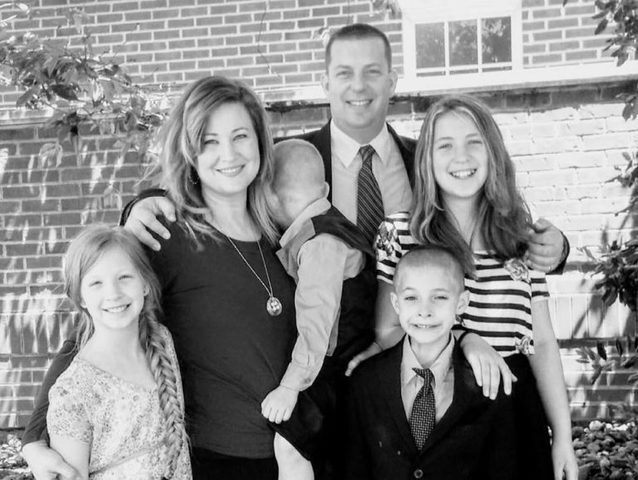If you’re like me — a member of The Church of Jesus Christ of Latter-day Saints — you have a bishop. (Members of smaller congregations who have a branch president instead of a bishop, don’t tune out. I’m also talking to you.)
If you attend another church, you may have a pastor, preacher or minister. This also applies to most of you, too.
A few weeks ago, I sat in a training and coordination meeting with 10 leaders from my church serving in our region. I listened, took plenty of notes and piped up a time or two with an opinion. But mostly I looked into their eyes and perhaps for the first time, I really saw them. These are marvelous men and loving leaders.
As the meeting slowly unfurled, I started seeing the faces of every bishop I’ve ever known. They were all there — from my earliest memories in places like Virginia, Germany, and Illinois to Utah, Brazil and back to Virginia again.
Reminiscing about these marvelous men from my past, and being surrounded by the loving leaders of the present, it struck me that although I’m no expert, I’ve learned a thing or two about bishops.
In fact, I bet I even know a thing or two about yours.
First and foremost, unless you’ve had only one bishop your whole life or since you joined the Church, then you’ve seen how different they are. These men, none of whom applied for the position, bring their own backgrounds, gifts, strengths, and weaknesses to the calling.
They all desire to be a disciple of Christ, but their personalities are as different as any other two people. And when they are ordained a bishop, they’re not required to become someone new — they’re invited to simply become the best version of who they already are.
Still, despite those differences, one thing remains consistent no matter their age, location or language: They hold precious priesthood keys. Those keys provide consistency, safety, revelation, and inspiration.
This next one won’t surprise you either: He’s imperfect. He makes mistakes. He wants to be a better husband, a better father, a better man and a better leader. But on his best days, when he drives home after a long day of service feeling accomplished and successful with a wide smile on his face, he’s still as imperfect as the rest of us.
Your bishop knows that your family prays for him and for his own family. And though he might not always think to thank you, he appreciates those prayers more than you will ever know.
Remember that while you’re praying for him, he’s praying for you. Every single day, on his own, with his family and in meetings, he is praying for you.
And any discussion about a bishop must include his wife. She knows he has a calling that can be lonely and isolating because of the confidences he keeps. So when he needs someone to hug, someone to laugh with or someone’s shoulder to lean on, she’s always there. He simply could not be a bishop without her. In so many ways, she’s the glue that keeps her family and the Church family together.
Sometimes your bishop wakes in the night with impressions he can’t explain. But if he pulls you aside in the hallway next week just to ask how you are, or he sends you a text for no reason, or he schedules a visit or interview, it’s quite possible the Spirit woke him with a nudge.
Unfortunately, your bishop sometimes says the wrong thing. And he also sometimes says the right thing the wrong way. But it’s not because he’s not trying; it’s because he’s not a professional bishop. He’s a man learning his own dance with the Spirit — just like you.
That bishop you see scurrying between meetings and furrowing his thick brows during sacrament meeting wants to do a better job at delegating. He has counselors and he loves them like brothers, but delegating isn’t always easy. His mind and heart want to pass off some of the burden, but his hands don’t always agree. Don’t give up on him; he’ll get better.burden, but his hands don’t always agree. Don’t give up on him; he’ll get better.
Do you know just how deeply he desires your happiness? He lives for it. Seeing you smile in the hallway, watching you worship the Savior during the sacrament, those moments reflect your joy. When you’re down, he wonders why. When you’re up, he rejoices with you.
Because he’s seen the blessings in so many lives, he wants you to forgive, to study, to fast, to pay your tithing, to serve, to go to the temple and to share the gospel. The Lord has provided a mountain of evidence that living such a life brings blessings. But because you’re the bishop’s spiritual sibling, he loves you just as much whether you’re doing those things or not.
Yes, it’s all about the love. And what matters more than that? Your bishop loves you. He loves you on the good days and on the bad. He loves you when you’re in a pew on Sunday, he loves you when you drift, he loves you when you say yes to a calling or assignment and he loves you when you tearfully say the time just isn’t right.
And so we return to where we began — in that room of leaders striving to learn more, serve better and draw closer to Christ. They’re no better, no more spiritual and not a drop more perfect than you are. But they sure are trying.
Take it from a bishop.
Lead image from jasonfwright.com
Jason F. Wright is a New York Times bestselling author, columnist, and speaker. The collector's edition of his classic Christmas tale, Christmas Jars is now available at Deseret Bookand on Amazon. Subscribe to his weekly columns, join him on Facebook, and follow him on Twitter.




